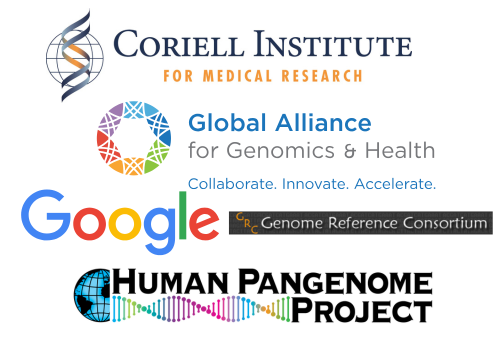Partners

Coriell Institute
Many of the samples used in the reference genome are made available to researchers through the Coriell Institute.
Genome Reference Consortium
Genome Reference Consortium helps to put nucleotide sequences into chromosome context for many different genomes.
The team at Google develops variant detection methods for calling with pangenomes and for error correction of assemblies. Google has also developed sequence data correction methods that improve the output of sequencing instruments. Google is working with HPRC members to apply that technology to HPRC sequencing data and assemblies.
GA4GH
The HPRC is committed to GA4GH principles which include a framework for responsible sharing of Genomic and Health-Related Data, and the associated work streams that are founded on this framework. Learn more about GA4GH and how to become a contributor to the GA4GH community.
The HPRC is a member of the Human Pangenome Project, which is a GA4GH Driver Project.